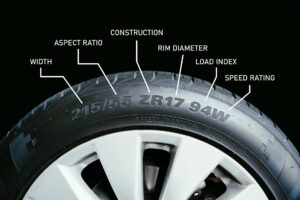So, you’re all revved up about your new prized ride, but suddenly, you hit a speed bump, and now you’re in the midst of automotive trickery. We’ve all heard the horror stories, and today, we’re tackling the big question – what to do if scammed by a car dealership? Fasten your seatbelt, because we’re about to take a detour into the land of making well-informed decisions, helping you dodge those sneaky potholes.
What to Do If Scammed by a Car Dealership?
If you suspect there’s been fraud, start by gathering all of the documents related to the purchase as soon as possible. Pause any further transactions and contact the dealership to address your concerns. If the issue isn’t resolved, consult a consumer protection lawyer for legal advice. Report the scam to local consumer protection agencies and the Better Business Bureau. Remember, your prompt response and knowledge are key to navigating this challenging situation.

Spot the Scam – Recognizing Car Dealership Fraud
There’s nothing quite like driving off the lot in your shiny new ride, with the engine purring like a promise of exciting adventures ahead. That euphoria, however, can quickly screech to a halt when you realize the deal wasn’t as clear-cut as you thought. This realization can be as jarring as a sudden stop in one of the cities with the worst drivers, leaving you questioning every step of the deal.
Unfortunately, auto sales scams are not as rare as a classic four-wheeler. According to PointPredictive, there’s a $400 million increase in this fraudulent business compared to last year. These scams come in various guises, cleverly engineered to slip past your defenses. Let’s peel back the hood on some of the most common types you might encounter:
- Vehicle financing fraud – this occurs when dealers offer incredibly attractive financing terms at the point of sale, only to call you back days later claiming it fell through and presenting a less favorable deal,
- Yo-yo sales – similar to the push and pull of a yo-yo, this scam involves dealers letting you drive off with the four-wheeler, then calling you back to renegotiate the terms under the threat of repossession,
- Bait-and-switch advertising – dealers advertise a great car price to lure you in, only to find that it’s no longer available, pushing you towards a more expensive mode,
- Extended warranty scams – dealers may insist on you buying an overpriced extended warranty, claiming it’s necessary for financing approval,
- Odometer fraud – less common but still prevalent, this scam involves rolling back the odometer to show a lower mileage, falsely inflating the vehicle’s value.
Signs That May Indicate You’re Being Scammed
The aforementioned scams often come wrapped in subtle signs that could raise red flags. One of the first indicators is experiencing pressure tactics when negotiating with car dealers. If you feel like you’re being rushed into a decision, with phrases like “this deal is only good for today”, it’s a classic sign.
Another telltale sign is a lack of transparency or consistent information. If the dealer is evasive about the car’s history or the terms of the deal, these are red lights flashing a warning. Also, be wary of complex contracts filled with jargon and clauses that weren’t discussed verbally. All in all, you should trust your instincts – if something feels off, it probably is.

A Fast Response – Immediate Steps After Suspecting a Scam
Whether you’re eyeing a sleek new ride, a dependable used vehicle, or even clicking through online listings, there’s always the risk of falling prey to a dealership scam. Deceptive car sales tactics don’t discriminate – new or used, in-person or online, the danger is always lurking.
If that sinking feeling of being scammed starts to set in, your immediate reaction can significantly impact the outcome. Time is of the essence, and the steps you take now are crucial. Here’s what you need to do straight away:
- Gather all records related to the purchase, including contracts, advertisements, emails, and any correspondence with the dealership,
- If you’ve set up any payments or financial agreements, put a hold on them to prevent further losses,
- Reach out to the dealership to discuss your concerns, as sometimes, it might be only a misunderstanding that can be resolved directly.

Understanding Auto Sales Contracts and Car Buying Rights Is Key
Once you’ve handled the immediate fallout and before you dive into the complexities of seeking legal recourse for car scams, take a moment to understand your rights as a buyer. This will help you make well-informed decisions and set clear expectations for the journey ahead.
Plenty of Laws and Regulations Are Put Into Place for Consumer Protection in Vehicle Purchase
Navigating the laws and regulations surrounding vehicle purchases can be pretty confusing, as they vary significantly from state to state. However, raising car buyer awareness is crucial, as it will guide you through the process and help you recognize when your rights are being infringed.
Here’s a table outlining some common auto industry consumer laws you should know about:
| Lemon Laws | Designed to protect buyers from defective vehicles, these laws generally allow for a refund or replacement if the vehicle is found to be a “lemon” |
| Truth in Lending Act | Requires lenders to provide clear and concise information about the cost of financing, including interest rates and total cost over the life of the loan |
| Used Car Regulations | Requires dealers to provide a Buyer’s Guide with every used car, detailing warranty and vehicle history information |
| Magnuson-Moss Warranty Act | Protects buyers of cars with warranties, ensuring that warranty terms are clearly disclosed and fulfilled |
| State-Specific Licensing Laws | Each state has laws governing dealership operations, ensuring they meet certain standards of practice and ethics |
Navigating Dealership Contract Issues – When to Seek Legal Advice
In the complex maze of buying contracts, automotive consumer advocacy emerges as your navigational beacon. Consumer protection lawyers specialize in untangling the often convoluted language of sales agreements and can spot discrepancies and illegalities that might otherwise be missed. Their role isn’t just about fighting legal battles – it’s about ensuring fairness and transparency in transactions.
Once you’ve gathered evidence and your initial attempts to resolve the issue with the dealership have been unsuccessful, it’s time to consult one of these lawyers. A good starting point is to contact your state’s bar association for referrals. When you get to the meeting, bring all relevant documentation with you. They will guide you on the next steps, whether it’s negotiation, arbitration, or litigation, based on the specifics of your case.
Filing a Complaint and Reporting Car Dealership Fraud
When you’re ready to report the fraud, it’s important to know which authorities to turn to and what information they’ll require. Here are a few potential courses of action:
- File a complaint with the Better Business Bureau (BBB), which can mediate between you and the dealership, while also alerting other consumers,
- Report the issue to your state’s Attorney General’s office, especially if you believe the dealership has violated state laws,
- If your case involves financing, consider reporting to the Consumer Financial Protection Bureau, which handles complaints about deceptive financial practices.

Mastering the Art of Negotiation – Dealing With the Dealership Post-Scam
Approaching the dealership after suspecting a scam can be likened to entering a high-stakes negotiation game – the key is to keep your cool. Approach the conversation as a problem-solving session rather than a confrontation. Clearly state your concerns and the discrepancies you’ve noticed. By doing so, you signal to the dealership that you’re not a pushover and are serious about reaching an equitable resolution.
When negotiating, it’s crucial to listen as much as you talk. Pay attention to the dealership’s responses and be ready to counter any misleading information with facts and evidence you’ve gathered. Throughout this process, document all interactions and agreements. If the dealership sees that you’re methodical and composed, they may be more inclined to work with you toward a fair resolution.

Auto Purchase Scam Prevention for Steering Clear of Future Trouble
When you’ve been burned once, you don’t leap into the flames easily again. But to ensure you’re never in such a situation again, let’s explore some key proactive tips that will shield you from potential fraud down the road:
- Before setting foot in a dealership, do your homework, meaning check online reviews, customer testimonials, and any news related to their business practices,
- Ask friends, family, or colleagues about their experiences and if they can recommend trustworthy dealerships,
- Ensure the business is licensed and in good standing with your state’s vehicle selling authority,
- Research the market prices for the models you’re interested in, as knowing the price range can help you spot unrealistic deals,
- Whether new or used, thoroughly inspect the vehicle, maybe even bring along a knowledgeable friend or a professional mechanic.
The Importance of Reading and Understanding All Paperwork
The final and perhaps most critical checkpoint of the whole ordeal is the paperwork. This includes the sales contract, financing agreement, warranty, and any service contracts. Reading and understanding every line is not just a formality – it’s your best shield against potential scams and the golden ticket to smooth drives along famous US routes.
Look out for inconsistencies with what was verbally promised, hidden fees, or clauses that seem unclear or unfair. If something doesn’t add up or is hard to understand, don’t hesitate to ask questions or seek clarification. All in all, signing a document without fully comprehending its content is a definite no-go.

Driving Into the Sunset With a Smart and Scam-Free Journey Ahead
As we park our conversation on this pothole-laden road, remember that being an informed and cautious buyer is always your best defense. It’s like cleaning foggy headlights, helping you see through the tricks and traps. So, rev up your confidence, keep your wits about you, and drive off into this adventure with the assurance that you’re well-equipped to steer clear of any deceptions. Here’s to hitting the open road with peace of mind and a scam-free deal in your rearview mirror!








